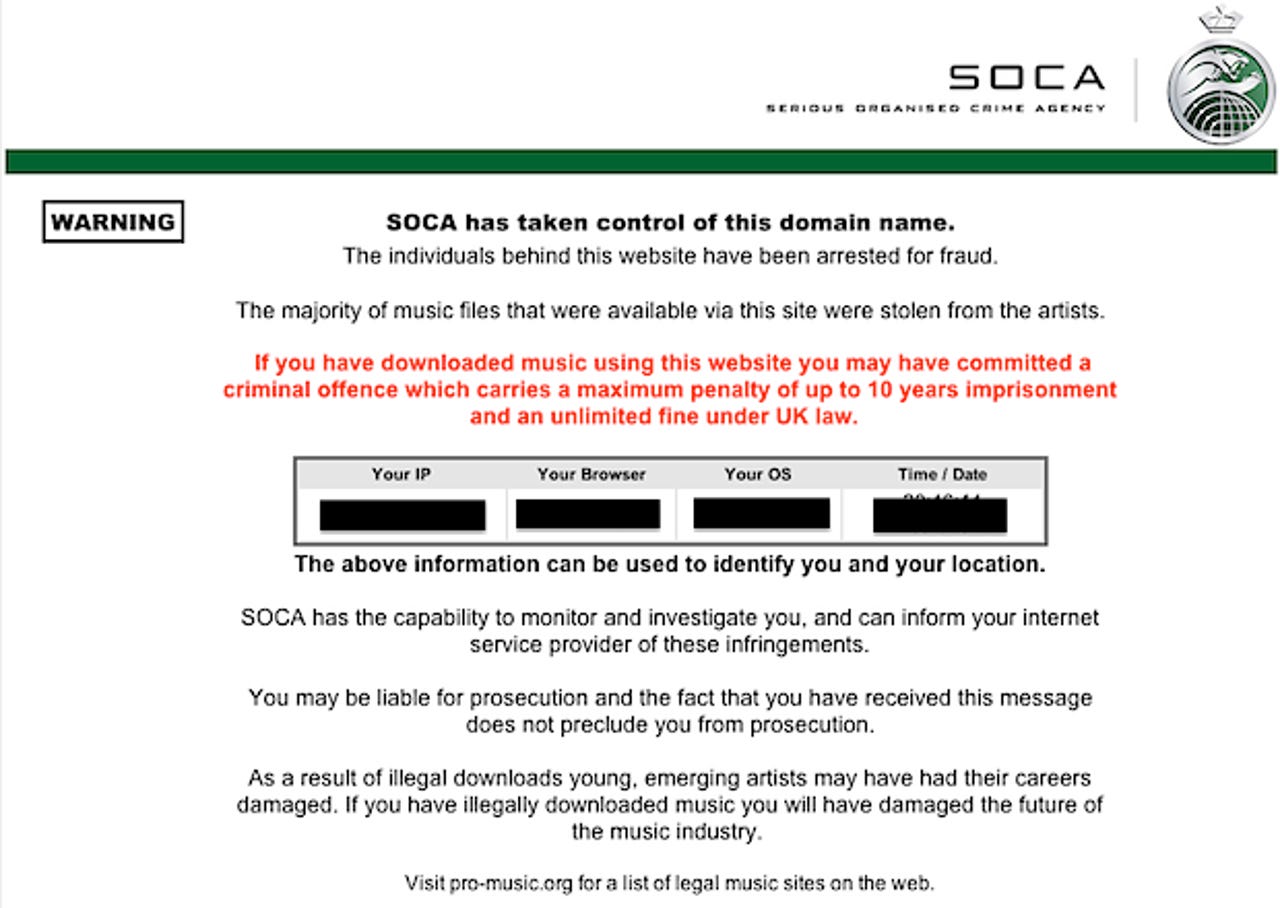UK authorities take down a U.S. domain: Could it happen to you?

A UK law enforcement agency has shut down a popular music blog in the style of a U.S. Department of Homeland Security domain name seizure.
Update: Confirmed by SOCA: "Yep, we did that," according to a spokesperson.
As TechDirtnoted, the process for UK law enforcement taking down a .co.uk website was far easier than that of how the U.S. does and continues to do so. In many cases, the courts were bypassed and Nominet was asked directly to take down the sites.
The worrying factor here is that while the UK's Serious Organised Crime Agency (SOCA) and other police forces have the right to ask Nominet, the registrar for .co.uk domain names, the RnBXclusiveblog in question was running from a .com domain name, seemingly outside of British jurisdiction.
If you try to access the site, users are warned of severe penalties in a splash page that appears even more daunting than that of the U.S. Immigration and Customs Enforcement (ICE) pages that file-sharing sites often succumb to.

Rackspace hosted the content in question, and its domain was registered with GoDaddy; both are U.S. companies.
In speaking to GoDaddy, a spokesperson confirmed that the company had a "presence" in the UK. Companies House, the UK's business registrar, says that has a registered office in London. It also shows that Rackspace also has a UK office based near London outside of its Texas-based headquarters.
But how does UK law enforcement have the right to extraterritorially seize a domain that belongs to the United States? That question alone has most others completely baffled.
Because of their UK presence, it means the parent companies are tied between complying with U.S. law, and their wholly-owned subsidiaries in the UK and Europe are tied by European laws and localised legislation.
On a practical level, if UK law enforcement request the takedown of a domain outside of its jurisdiction, the UK subsidiary can be forced to pass on the request to its U.S. parent company. From there, the U.S. parent must comply with UK law as it could face lawsuits and other legal nasties in the region. As far as I can see here --- and I'm no lawyer, but I have made enquires --- there is no conflicting U.S. law making the UK request more difficult to avoid.
Once again, the issue falls down to jurisdiction. Forgive me for banging on about it again, but this is exactly why the Patriot Act has such a damaging effect on European businesses, consumers, and even governments.
It's strange, after two years of researching the Patriot Act; it's somewhat gratifying to see European authorities strike back. I'm oddly proud, yet equally horrified. At least we now know it goes both ways.
But before you worry that SOCA is watching your every move, TechDirt says that it is merely an "exaggeration", adding that, "while it may be able to monitor certain transactions, it seems to be implying that it's watching your every move."
Image source: SOCA/ZDNet.
Related:
- Microsoft’s European ‘cloud pact’ still does not protect data against FISA, Patriot Act
- European data protection law proposals revealed
- European Commission ‘in denial’ over Patriot Act loophole
- European Commission stonewalls Parliament over Patriot Act fears
- Defense giant ditches Microsoft’s cloud citing Patriot Act fears
Megaupload fallout:
- FileSonic shutters: Another file-sharing site bites the dust
- FileServe shutters in light of file-sharing site crackdown
- ZDNet: Anonymous hacks DOJ, RIAA, MPAA and Universal Music websites
- UK web blacklist blocks access to file-sharing site Fileserve
- More ISPs asked to block access to file-sharing sites